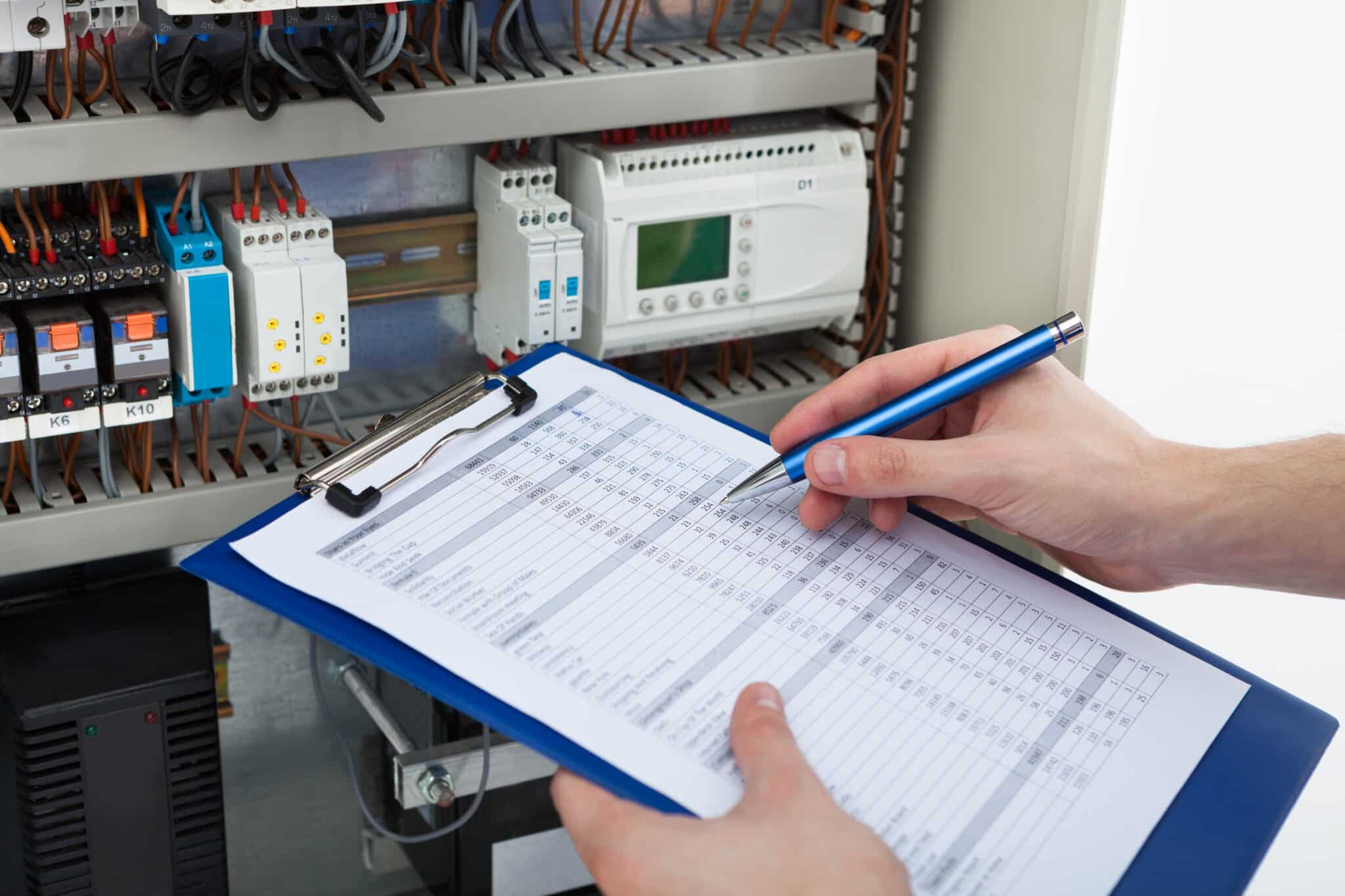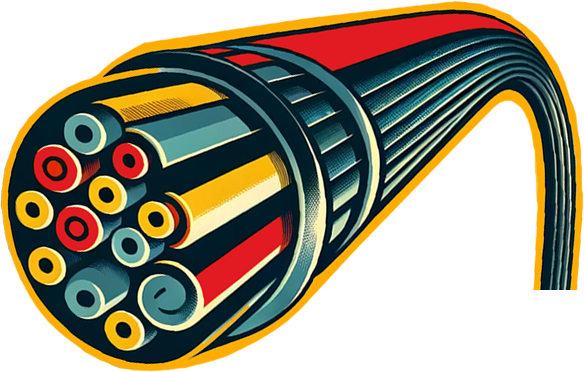Concerned about the safety of your home’s electrical system? Faulty wiring is more common than you might think and can pose significant risks if not addressed.
In this blog, we’ll dive into why identifying faulty wiring is crucial, the common signs to watch for, and how you can keep your home safe. Let’s get started on ensuring your home is electrically sound and secure.

Why Identifying Faulty Wiring is Crucial
Electrical safety is crucial for maintaining a safe and comfortable living environment. Problems with your wiring can pose serious risks that can threaten both your home and your family.
First and foremost, electrical issues can lead to fires, which are not only destructive but can also be deadly. It’s important to understand that even a small issue with your electrical system can escalate quickly if not addressed.
Secondly, damaged or improperly installed wiring can cause electrical shocks. Imagine plugging in your favorite device only to get a nasty zap! This can happen if the wiring is compromised.
Finally, poor wiring can damage your expensive appliances. Your refrigerator, TV, and other electronics are at risk of being fried if your home’s wiring isn’t up to par. This can lead to costly replacements and repairs.
Common Signs of Faulty Wiring
Flickering or Dimming Lights
Have you noticed your lights flickering or dimming unexpectedly? This often means that there’s a loose connection somewhere in the circuit, which can be hazardous if ignored.
Ignoring this sign can lead to more serious problems down the road. Ensuring that your lights stay steady is crucial for both safety and convenience. Keep an eye out for these changes in your lighting.
Frequent Circuit Breaker Trips
If your circuit breaker trips frequently, it’s a red flag. While breakers are designed to protect your home by cutting off power during an overload, constant tripping can indicate a more serious wiring issue.
It can be due to an overloaded circuit or another underlying problem. Addressing this issue quickly can prevent potential hazards. Don’t ignore frequent trips; they are a sign that your electrical system needs attention.
Strange Odors Near Outlets or Switches
A burning smell near your outlets or switches is a serious warning sign. This can indicate that wires are overheating, which poses a fire risk. If you ever notice this smell, it’s important to unplug devices and turn off the power immediately.
Have a professional inspect the wiring to identify and fix the problem. Safety first; never ignore strange odors around electrical components.
Discolored or Charred Outlets and Switches
If you see discoloration or charring around your outlets and switches, it’s time to investigate. This is often a sign that the wiring behind them is damaged and needs immediate attention.
Damaged wiring can overheat and potentially cause fires. Ensure you replace or repair any discolored outlets or switches promptly. Keeping your outlets and switches in good condition is essential for home safety.
Buzzing or Crackling Sounds
Hearing buzzing or crackling sounds from your electrical outlets or switches? This unusual noise often indicates loose connections or damaged wires that need to be addressed before they lead to more significant problems.
Ignoring these noises can result in dangerous situations. Always have a professional electrician check any buzzing or crackling sounds promptly.
Visual Inspections You Can Perform
Checking for Damaged Wires
Start by examining visible wires in your home for any signs of damage. Look for fraying, cuts, or exposed wiring. Damaged wires are a clear indicator that your electrical system needs attention.
Repairing or replacing damaged wires promptly can prevent potential hazards. Always ensure wires are in good condition to maintain a safe electrical environment.
Inspecting Outlets and Switches
Take a close look at your outlets and switches. Check for any discoloration, scorching, or melting around the edges.
These signs can indicate overheating and potential fire risks. Ensure that all outlets and switches are securely fastened and show no visible signs of wear. Regular inspection can help you catch problems early.
Identifying Frayed or Exposed Wiring
Frayed or exposed wiring is a serious safety hazard. These wires can easily spark and cause fires. Make sure to inspect areas where wiring is visible, such as in basements, attics, or crawl spaces.
If you find any frayed or exposed wires, it’s crucial to have them repaired immediately. Protecting these areas ensures your home remains safe from electrical risks.
Using Your Senses to Detect Issues
Smell: Burning or Unusual Odors
If you smell burning or unusual odors near outlets or switches, it’s a strong indication of faulty wiring. Such smells often mean wires are overheating and could potentially cause a fire.
Always take these odors seriously and investigate immediately. Unplug devices and turn off power to the affected area. Contact a professional to inspect and fix the issue promptly.
Sight: Visible Damage or Wear
Visible damage or wear on wiring and electrical components is a clear sign of trouble. Look for frayed wires, discolored outlets, and damaged insulation. These visual cues can indicate that your wiring needs repair.
Addressing visible damage early can prevent more severe problems. Regular visual inspections can help you maintain a safe electrical system.
Sound: Unusual Noises from Electrical Components
Hearing buzzing, crackling, or popping sounds from outlets or switches can be a sign of faulty wiring. These noises often indicate loose connections or damaged wires. Ignoring such sounds can lead to dangerous situations, including electrical fires.
Always have a professional check for any unusual noises promptly. Ensuring your electrical components are noise-free is crucial for safety.
Tools and Devices for Detecting Faulty Wiring
Using the right tools and devices can make detecting faulty wiring much easier. Here are some essential tools to help ensure your electrical system is in good condition:
- Voltage Testers: These handy devices help check if an outlet or switch is live. They quickly determine if there’s an issue with the electrical current, making them essential for identifying faulty wiring. Always follow the manufacturer’s instructions for safe use.
- Circuit Analyzers: Circuit analyzers provide detailed information about your electrical circuits, identifying problems like incorrect wiring and interruptions. Regular use ensures your electrical system is functioning correctly, saving you from future headaches.
- Thermal Imaging Cameras: These cameras detect hot spots in your electrical system, indicating faulty wiring. They create a visual representation of heat distribution, helping you prevent potential fires. Thermal imaging is particularly useful for older homes.
- Multimeters: Multimeters measure voltage, current, and resistance in electrical circuits, making them versatile tools for diagnosing a wide range of electrical issues. Regular use helps maintain a safe and efficient electrical system.
- Plug-In Circuit Testers: These simple devices check outlet functionality, identifying common wiring problems like reversed polarity and open ground. They provide instant feedback, making it easy to diagnose and fix outlet issues.
Using these tools can help you detect faulty wiring and maintain a safe electrical system in your home.
Potential Causes of Faulty Wiring
Understanding the causes of faulty wiring can help you prevent issues before they arise. Here are some common reasons why wiring problems occur in homes:
- Poor Installation Practices: Faulty wiring often starts with poor installation practices. Loose connections, improper grounding, and overloaded circuits can all stem from incorrect installation. Always hire a licensed electrician to ensure proper installation.
- Aging Electrical Systems: As electrical systems age, they become less reliable and more prone to faults. Older homes are particularly at risk. Regular maintenance and timely upgrades are essential to keep your electrical system in good shape.
- Rodent Damage: Rodents like mice and rats can chew through insulation, leaving wires exposed. Regular pest control and periodic inspections can help prevent rodent damage. If you suspect rodent damage, contact a professional immediately.
- Overloading Circuits: Plugging too many devices into a single circuit can exceed its capacity, causing it to overheat. Distribute your electrical load evenly and consider installing additional circuits in busy areas of your home.
- Environmental Factors: Moisture, heat, and corrosion can deteriorate insulation and cause wires to short circuit. Ensure your wiring is properly insulated and protected from environmental damage. Regular inspections can help identify and address these issues.
Addressing these potential causes can help you prevent faulty wiring and maintain a safe home.
The Dangers of Ignoring Faulty Wiring
Fire Hazards
One of the most significant dangers of faulty wiring is the risk of fire. Damaged or improperly installed wiring can overheat and spark fires, causing extensive damage to your home.
Electrical fires can spread quickly and are often difficult to control. Ensuring that your wiring is in good condition can prevent such hazards. Regular inspections and prompt repairs are crucial for fire prevention.
Electrical Shocks
Faulty wiring can also lead to electrical shocks, which can be dangerous or even fatal. Exposed wires, improper grounding, and other issues can cause electricity to flow where it shouldn’t, posing a serious risk to anyone who comes into contact with it.
Always handle electrical components with care and seek professional help for repairs. Protecting yourself and your family from electrical shocks is essential.
Appliance Damage
Damaged wiring can affect the performance of your household appliances. Faulty wiring can cause power surges, which can fry the internal components of your appliances, leading to costly repairs or replacements.
Ensuring that your wiring is in good condition can protect your appliances from damage. Regular maintenance can help you avoid unexpected appliance failures.
Increased Energy Bills
Faulty wiring can also lead to increased energy consumption and higher utility bills. Poorly installed or damaged wiring can cause electrical resistance, which wastes energy and reduces the efficiency of your electrical system.
Addressing wiring issues can help you save on energy costs. Ensuring your electrical system is efficient benefits both your wallet and the environment.
Decreased Home Value
Finally, ignoring faulty wiring can decrease the value of your home. Potential buyers are often wary of homes with electrical issues, and a poorly maintained electrical system can be a significant deterrent.
Ensuring your wiring is up to code and in good condition can maintain or even increase your home’s value. Regular electrical maintenance is an investment in your property.
When to Call a Professional Electrician
Knowing when to call a professional electrician is crucial for maintaining a safe electrical system. Here are some situations where professional help is necessary:
- Assessing the Severity of the Issue: If you notice any signs of faulty wiring, assess the severity. Minor issues might be DIY-friendly, but serious problems need a pro. Electricians can diagnose accurately and safely. When in doubt, always consult a professional.
- Dealing with Frequent Circuit Breaker Trips: Frequent tripping can indicate serious wiring problems. An electrician can find the root cause and make necessary repairs, preventing potential hazards and ensuring your system functions safely.
- Handling Burning Smells or Scorch Marks: Burning smells or scorch marks near outlets are red flags. These signs suggest overheating wires and potential fire risks. A professional can fix these problems before they escalate, ensuring home safety.
- Upgrading Old Electrical Systems: Older homes often have outdated systems that can’t handle modern demands. A professional can assess and upgrade your system, improving safety and efficiency, and boosting your home’s value.
Calling a professional can help you maintain a safe and efficient electrical system in your home in Katy, TX, or Richmond, TX.

Preventive Measures to Avoid Faulty Wiring
Regular Maintenance Checks
Regular maintenance checks are essential for spotting potential wiring issues before they become serious problems. Schedule routine inspections with a qualified electrician to ensure all components are in good condition.
These checks can help identify wear and tear, frayed wires, and other signs of trouble. Regular maintenance not only ensures safety but also improves the longevity of your electrical system. Consistent upkeep can save you from costly repairs down the line.
Upgrading Old Electrical Systems
If your home has an old electrical system, consider upgrading it. Modern electrical systems are designed to handle higher loads and are more efficient.
Upgrading ensures that your wiring meets current safety standards and reduces the risk of faults.
A professional electrician can assess your system and recommend necessary upgrades. Keeping your electrical system up-to-date is crucial for safety and efficiency.
Proper Usage of Electrical Appliances
Using electrical appliances properly can prevent wiring issues. Avoid overloading outlets and power strips, as this can cause overheating and damage your wiring.
Follow manufacturer instructions for all electrical devices and unplug appliances when not in use. Proper usage reduces the strain on your electrical system. Educating household members about safe appliance use can further protect your home.
Get Expert Help from The Local Electrician Today!
Are you experiencing electrical issues in your home? Don’t wait until it’s too late! At The Local Electrician, we specialize in keeping homes in Katy, TX, and Richmond, TX, safe and efficient.
Our team of licensed professionals is ready to tackle any electrical problem, big or small. From flickering lights to frequent circuit breaker trips, we’ve got you covered.
Contact us today at 346-483-7150 for peace of mind. Call now to schedule your appointment and ensure your home’s electrical system is in top condition!
FAQs
Can wiring problems cause a fire?
Yes, wiring problems are a leading cause of electrical fires. Damaged or improperly installed wiring can overheat and ignite, posing a serious risk to your home and safety. Regular inspections and prompt repairs are crucial to preventing fires.
How often should I check my home’s wiring?
It’s recommended to have your home’s wiring inspected by a professional electrician every 3-5 years. However, if you notice any signs of issues, such as flickering lights or burning smells, you should have it checked immediately.
Can I fix electrical issues myself?
While some minor electrical tasks can be handled by knowledgeable homeowners, fixing wiring problems is generally not recommended as a DIY project. Electrical work can be dangerous, and improper repairs can lead to serious hazards. It’s best to hire a licensed electrician.
What should I do if I smell burning near an outlet?
If you smell burning near an outlet, turn off the power to that area immediately and unplug any connected devices. Do not use the outlet until it has been inspected and repaired by a professional electrician. This smell often indicates overheating and a potential fire risk.
How can I tell if my wiring is outdated?
Outdated wiring can often be identified by signs such as frequent tripping of circuit breakers, discolored or charred outlets, and old-fashioned knob-and-tube wiring. If your home is more than 40 years old, it’s a good idea to have an electrician inspect your wiring to ensure it meets current safety standards.
What are GFCI outlets, and why are they important?
Ground Fault Circuit Interrupter (GFCI) outlets are designed to protect against electrical shock by shutting off power if they detect a ground fault. They are particularly important in areas where water is present, such as bathrooms and kitchens. Installing GFCI outlets can greatly enhance your home’s electrical safety.






























